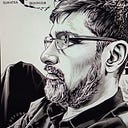Book Review: Autumn Light
If I were to tell you that I am writing a book of farewells, then you would understand why this book review makes sense to me. Pico Iyer is a journalist first and then an author and it is reflected in his poignant tale of the Japanese Autumn — the seasons of fire and farewells. It is a classic weaving of the season with the social fabric — the flaming heads of the trees to the disappearing friends at the ping-pong club.
I read it with trepidation and always felt that the story might have that sudden stab at my heart, but it turned out to be a slow poison of poignancy that left a long, longing aftertaste in my mouth. The book does not explore death, but life in flashbacks and about the dying in a sort of soft, absentee way, — the exact opposite of Leo Tolstoy’s The Death of Ivan Ilyich, which explores the approach of death and then finding the meaning of life through dying.

“Autumn poses the question we all have to live with: How to hold on to the things we love even though we know that we and they are dying. How to see the world as it is, yet find light within that truth.”
― Pico Iyer, Autumn Light: Season of Fire and Farewells
Autumn, through all its flaming glory, reminds us of our mortality. The truth is that people will vanish from our lives and everything around us is transient, yet it is so hard to let go, and we have to love those who are around us, knowing that this will all go away someday, like the blazing leaves of the autumn trees. In the fire of the forest, in the full glory of the parting season, we will find the truth about life and love.
Pico Iyer, a journalist with the New York Times, visits Japan on an exploratory visit — in the middle of a transit stop in Kyoto — and discovers that he loves the country, and gets introduced to Hiroko, a widow with two children, Sachi and Takashi. Iyer settles down in a place called Nara, a slowly receding town because people have gotten older, not far from Hiroshima. They live in a small two-bedroom house that is part of a standard neighborhood — a bus stop, a library, and most importantly a ping-pong group as part of the health club. Pico slowly gains access to the aging masters of the game of ping pong — old, retired men and a cackling group of old women, both of whom can smash and return a smash with flair and finesse.
Iyer makes his annual trip to his mother in California. The story covers Hiroko who has been married for twenty-plus years, and her family — Masahiro, her foreign-educated, erudite brother who separates and cuts himself off from his family; her now-gone father who spent time as a POW in Siberia and told a lot of stories about the war; and her mother who is now put up under geriatric care because of her dementia. He loves his time with them, but at the same time explores the relationship between them in terms of lost love and regrets, their attempts to communicate with each other.
His trips to the mountains with his in-laws open up the layers of the fabric of love, longing, and life. He ends the book with these lines —
‘For now, though there’s nowhere to go on the silent moment and a boy who’s just returned ninety is surveying the landscape … … while his wife of sixty years sings, “ We are so lucky to have a long life!” Hold this moment forever, I tell myself, it may never come again. ― Pico Iyer, Autumn Light: Season of Fire and Farewells
The story is also about Hiroko — who speaks English without grammar but is a punctilious puzzle that we try to unearth through Iyer’s views about her and their conversations in broken English.
‘What kind story your book?’ Hiroko asks. ‘You writing autumn story?’ Then again she asks ‘Your book, nothing happening?’. Then she concludes ‘Rain come down window… Quiet music playing. Autumn Light’. Exactly. The story is much more — her progressive understanding of her father’s loss and her mother’s fading away, and the regret that her brother is still obstinate despite having children who need to know their grandparents. This is a separate strand that flows through the book as a most intricately woven family drama.
If there is a turning point in the book, it is when Dalai Lama enquires about her father, and when he comes to know of his death.
‘Everyone dies,” he said sternly. “That is the law of existence. Every life concludes in death.’ … “I so shock,” she says now. “I hoping he say some kind of word, give me power. But opposite. …All I know! But that time, I so upset. Little door closing in my life.” ... “I cannot ask other person. Must be strong myself. Other person cannot help. Now I so happy thinking that moment. But first time I hear, so sad.”
The disappearance of many friends in the ping-pong club trails the entire narrative as a shadow. The season of autumn is a season of farewells. Japan is the world’s oldest population and it is felt through the book.
“This road
No one on it
As autumn ends”
― Pico Iyer, Autumn Light: Season of Fire and Farewells
The book leaves us looking back at our past, the seasons that we traversed, and the people who aren’t there with us when seasons return. There is an overlay of grief, but the fabric is still beautiful — the autumn of Japan is a season of fire and farewells.
~Ashok Subramanian © 2024








